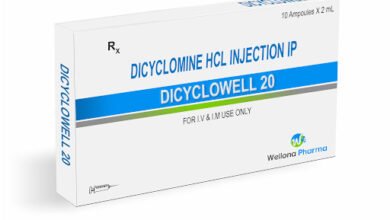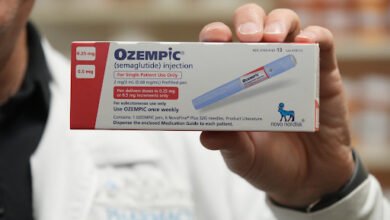Top EpiPen Alternatives: Life-Saving Options for Allergies

Anyone with a severe allergy should carry an EpiPen® at all times. The auto-injector immediately releases epinephrine to stop a potentially fatal allergic reaction that some foods or insect stings can cause in you or your loved ones. Because reactions can happen at a time, minutes can make a significant difference. There is an increased risk of fatality when epinephrine is delivered slowly.
Fortunately, EpiPen alternatives on the market offer more affordable options for those needing life-saving medication. Most of these alternative auto-injectors require a valid prescription from a licensed medical professional to be used.
What is the purpose of an EpiPen?
The first line of treatment for anaphylaxis is epinephrine (EpiPen, EpiPen Jr, Adrenaclick, Auvi-Q, Symjepi, or generic versions of the epinephrine auto-injector). A self-injectable tool is an auto-injector.
-
Epinephrine, a catecholamine, is the synthetic equivalent of adrenaline, a hormone the body naturally produces in response to stress.
-
Those experiencing a severe allergic reaction risk anaphylactic shock, which can be fatal if epinephrine is not administered immediately.
The prescription-only brand-name drug EpiPen, also known as epinephrine, is manufactured by Viatris. Although epinephrine, the main element in the EpiPen, was first synthesized in 1906, it was only initially approved in 1989.
Avoiding the allergen that sets off a severe allergic reaction is always preferable. But if exposure does happen, it is important to act swiftly and use an auto-injectable epinephrine product like EpiPen to help prevent anaphylaxis.
Many epinephrine medicines are available as auto-injector pens that can be administered by anybody on the sidelines, including the patient, parent, teacher, and school nurse. The injection can even be administered through clothing and is given in the thigh.
What triggers an allergy that could be fatal?
Some instances are:
-
Bee, yellow jacket, wasp, hornet, and fire ant stings.
-
Medications.
-
Peanut butter, nuts, and other nut butter.
-
Shellfish.
-
Latex.
-
Milk, wheat, soy, and sesame.
-
Workout (less frequent).
Also, Read Tips for Enhancing Workout Gains
Does EpiPen have a generic version?
Yes, there are now less expensive alternatives to this life-saving medication.
-
In reality, Teva Pharmaceuticals’ first generic version of the epinephrine auto-injectors EpiPen and EpiPen Jr received approval in August 2018.
-
The strengths of the generic epinephrine auto-injector are 0.3 mg and 0.15 mg. Patients who weigh more than 30 kg (66 lbs) should use the 0.3 mg strength, while those who weigh between 15 and 30 kg (33 lbs and 66 lbs) should use the 0.15 mg (Jr.) strength.
-
It uses the same medication and auto-injector as the Epipen and is administered similarly.
The authorized generic for EpiPen and EpiPen Jr. is one of several less expensive substitutes for the EpiPen brand name product. An alternative is an approved generic version of Adrenaclick, an EpiPen-like epinephrine auto-injector. In June 2020, the FDA issued an Alert regarding issues with the Adrenaclick device, so make sure to verify any goods you now own.
What exactly is an authorized generic?
According to the FDA, the name on the label is the only distinction between a brand name equivalent and a generic medication that has been approved.
-
The authorized generic for EpiPen, for instance, contains the same medication (therapeutically comparable) and the same device, but the label on the container reads “epinephrine” rather than “EpiPen.”
-
The same producer creates an authorized generic following an NDA already receiving FDA approval. The same production facility is also employed.
-
Although it might be less expensive than a real generic, manufacturers can market an authorized generic of their brand-name product at a reduced price.
What are some alternatives to the EpiPen?
Many individuals with severe allergies seek an EpiPen alternative due to its high cost and availability issues. Some alternatives to the EpiPen are listed below,
1. Audi-Q-
The Auvi-Q brand-name epinephrine auto-injector stands out because it has unique features. It’s smaller in size, and it comes with an automatic retractable needle system. What’s even more interesting is that it provides voice instructions, which guide the user through the process of administering epinephrine, giving step-by-step directions for added safety and convenience. This quickly retracts the needle into the device and is a safety feature.
For patients weighing more than or equal to 30 kg (66 lbs), an oral dose of 0.3 mg of auvi-Q is offered. According to weight, two smaller dosages of Auvi-Q (0.1 mg and 0.15 mg) are also authorized to administer an epinephrine dosage suitable for infants, toddlers, and young children.
Eligible patients who lack commercial insurance and are struggling financially may be able to obtain Auvi-Q for free through the Kaleo Patient Assistance Programme. On their website, Kaleo offers an enrollment form that must be completed by both you and your healthcare physician.
2. Symjepi-
The FDA approved Symjepi (epinephrine), a brand-new, single-dose, prefilled epinephrine syringe used for the emergency treatment of anaphylaxis, in June 2017. The product includes two single-dose epinephrine syringes; an auto-injector is not included.
According to the makers, Symjepi is more affordable, smaller, and easier to use than EpiPen. Contrary to most auto-injectors, Symjepi’s needle is not spring-loaded; instead, the medication is released by inserting the needle into the thigh and then depressing the top plunger until it clicks. The less complex design might aid in keeping costs reasonable.
3. Adrenaclick-
Epinephrine is present in both Adrenaclick and the EpiPen. They both come in auto-injector form and have the same dosage. However, there are some variations in how they are applied. You can ask your healthcare practitioner to write for the other if your health insurance doesn’t cover one. Your chemist can only substitute them with your doctor’s approval.
You can ask your doctor to issue a prescription for the other if they write one for the first and it isn’t covered by insurance or is too expensive.
When do EpiPens stop working?
Many patients are curious about how long an EpiPen can be used before it expires because it can sit unused for extended periods. The auto-injectors’ expiration dates approach swiftly, typically within a year, necessitating routine – and economical – replacement of this life-saving drug. In case of exposure to the allergen, patients typically need multiple EpiPen packs to maintain at home, the office, and school.
When you get your epinephrine injector from the pharmacy, always check it at the counter to be sure it still has at least a year until it expires. Otherwise, talk to your pharmacist about switching to an injector with a longer expiration date.
Is EpiPen available over the counter (OTC)?
You can purchase an EpiPen in the United States with a prescription from your physician. Although some schools have the item on hand for emergencies, use in that situation would still be governed by a healthcare professional.
Epinephrine auto-injectors are sold at pharmacies in other nations, like Canada, without a prescription.
Also, Read How to Deal With Seasonal Allergies & Itchy Eyes
Conclusion-
You may think of seasonal allergies when you hear “allergies.” However, allergies include many things, such as foods, drugs, and insect stings. Some people may experience a severe allergic reaction, including anaphylaxis, after exposure to these drugs. This may result in symptoms including hives, trouble breathing, and tightness in the throat.
It’s critical to take action right away when these symptoms appear. To prevent the severe allergic reaction from worsening, this includes injecting epinephrine. Epipens can be expensive, so we have mentioned some useful alternatives for Epipens in the above blog, which you can try.
Researching and comparing the various EpiPen alternatives can help you make an informed decision about your allergy management.
Source link
#Top #EpiPen #Alternatives #LifeSaving #Options #Allergies



